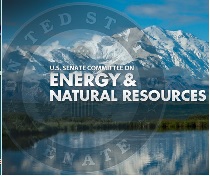Ballooning Federal Estate a Primary Barrier to Modernizing Infrastructure on Federal Lands
WASHINGTON, D.C., March 16, 2017 – (RealEstateRama) — The Subcommittee on Federal Lands held an oversight hearing on ways to improve infrastructure and management at the National Park Service (NPS) and the Forest Service (USFS).

“A reasonable person might conclude that federal agencies with deferred maintenance backlogs of $6 billion [USFS] and $12 billion [NPS] should first take care of the land it currently administers before acquiring new land. Yet, our land management agencies continue to push for additional land to be included in their systems. Real conservation means taking care of the things that you already own,” Rep. Scott Tipton (R-CO) said.
Prioritizing the care and management of existing federal lands was echoed by the panel. Executive Director of the Property and Environment Research Center Reed Watson pointed out the significant increase in units managed by the NPS over the past decade despite its growing maintenance backlog. NPS managed 390 units in 2006, today they manage 417 units.
“It is ironic and unfortunate that many of the laws and regulations intended to enhance the value and accessibility of our national parks and forests are, in fact, accelerating their deterioration,” Watson stated.
According to John Palatiello, President of the Business Coalition for Fair Competition, the massive federal estate rivals that of the Soviet Union and the federal government doesn’t know what it actually owns. He also referenced remarks from President Ronald Reagan during a question-and-answer session in Cleveland, OH in 1988:“West of the Mississippi River, your first glance at the map, you think the whole thing is red, the government owns so much property […] I don’t know any place other than the Soviet Union where the government owns more land than ours does.”
“Thousands of acres, valued at billions of dollars, could be in Federal ownership that Uncle Sam doesn’t know he owns,” Palatiello added. “Not only does the government lack a current, accurate land inventory, but dozens of agencies spend funds operating and maintaining a variety of out of date, inaccurate and duplicate single-purpose land records databases.”
In addition to creating an accurate inventory of the federal estate, the panel encouraged the use of the Land and Water Conservation Fund (LWCF) for deferred maintenance over further land acquisition.
“The majority of LWCF appropriations have actually exacerbated the federal land infrastructure crisis by stretching the agencies’ maintenance budgets over an ever-expanding the federal estate,” Watson said.
Other witnesses and members discussed streamlining cumbersome regulatory processes, increasing opportunities for philanthropic donations and engaging with volunteer and partner groups to improve infrastructure and management while saving costs and increasing efficiency.
Click here to read full witness testimony.
Committee Press Office 202-226-9019




